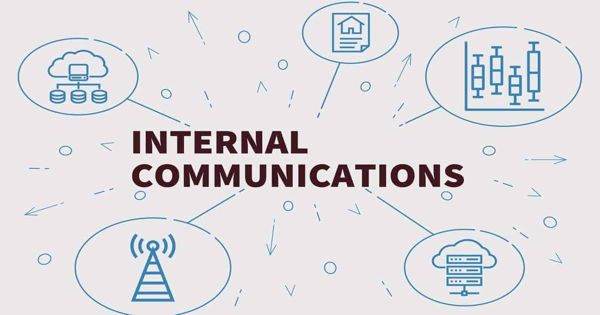Internal communication shares information about the company so employees can perform their jobs well. Every organization has its own objectives and to obtain such objectives communication is required in each and every moment. It keeps people informed.
Internal communication is especially important because it links the day to day operation of a business. Internal communication’s purpose is to provide an effective flow of information between an organization’s departments and colleagues. The following points highlight the importance of internal communication.
Importance of Internal Communication

- Control:
Control means keeping something within the limit. Lack of control causes the misuse of resources. It is not possible to build stronger teams with weak internal communication. Such control can be possible if there is effective internal communication.
- Coordination:
Coordination among activities of different departments is highly essential to active the predetermined goals. Lack of coordination causes mismanagement. Conflicts are inevitable in the workplace. Clash of ideas, misunderstandings, or a sense of lack of recognition can often create internal and external conflicts. Through internal communication, a strong chain is possible to enhance coordination.
- Sharing goals and objectives:
One of the best ways to communicate the roadmap of your business is by leveraging your internal communication platform. Giving an overview and explaining your goals through a consistent information flow helps employees feel well-informed and capable of taking actions.
- Motivation:
Because of internal communication, all levels in an organization work properly to achieve the organizational goal. Nobody is ignored and therefore such communication acts as a motivating factor.
- Brings people together in difficult situations:
In times of crisis, internal communication is a valuable tool. Being able to communicate fast and easily with the right people in the organization can reduce stress and get things done.
- Development of Managerial Efficiency:
Management is getting things done by others. Communication is the only tool in this regard. To influence the workers, managers must have proper knowledge regarding the workers. Such knowledge can only be developed through internal communication.
- Job Satisfaction:
Employee dissatisfaction has a negative effect on job performance and therefore causes of dissatisfaction are to be identified and removed. Sound internal communication can help here and as a result, the employee will be inspired.
Others: Moreover, the followings are also possible because of internal communication:
- Preparation of plan and therefore execution of the plan
- Exchange of news and views
- Development of employee efficiency
- Maintenance of link between various levels
- Increasing morality.
Today organizations pay a hefty amount on public relations and marketing to improve its external communication but fail to improve its internal communication. Good Internal Communication, holds a powerful position because it can influence these components at work and improve employee engagement.
















